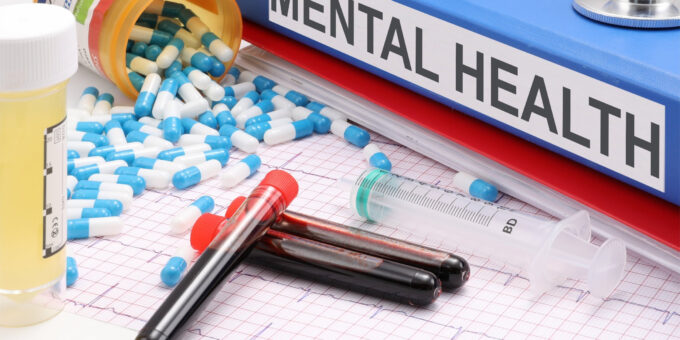
Mental health is just as important as physical health, yet it often goes unaddressed. Anxiety and depression are common mental health issues that can significantly impact daily life. This post will help readers recognize the signs of anxiety and depression and understand when to seek help.
Understanding Anxiety and Depression
- Anxiety is characterized by excessive worry or fear, often accompanied by physical symptoms such as rapid heartbeat, restlessness, or difficulty concentrating.
- Depression involves persistent feelings of sadness, hopelessness, and a lack of interest or pleasure in activities.
Recognizing Signs of Anxiety
- Constant Worry: Individuals with anxiety often find themselves worrying excessively about everyday situations, even when there is no apparent reason for concern.
- Physical Symptoms: Anxiety can manifest physically, leading to symptoms such as muscle tension, headaches, digestive issues, and sleep disturbances.
- Irritability: Heightened anxiety can lead to increased irritability and difficulty managing stress, making it hard to cope with daily challenges.
- Avoidance Behaviors: People with anxiety may avoid situations that trigger their fear or worry, leading to social withdrawal or isolation.
Recognizing Signs of Depression
- Persistent Sadness: Feelings of sadness or hopelessness that last for weeks or months can be a sign of depression.
- Loss of Interest: A marked disinterest in activities once enjoyed, including hobbies or socializing, is a key indicator of depression.
- Changes in Appetite or Sleep: Depression can lead to significant changes in appetite (overeating or loss of appetite) and sleep patterns (insomnia or oversleeping).
- Difficulty Concentrating: Many individuals with depression experience difficulties with focus and decision-making, affecting productivity at work or school.
When to Seek Help
Recognizing the signs of anxiety and depression is the first step toward seeking help. It’s important to talk to a healthcare professional if you or someone you know is experiencing these symptoms. Early intervention can make a significant difference in recovery.
Self-Care Strategies
- Talk About It: Sharing your feelings with trusted friends or family can provide support and reduce feelings of isolation.
- Practice Self-Care: Engage in activities that promote relaxation and well-being, such as exercise, mindfulness, or spending time in nature.
- Seek Professional Help: Therapy, counseling, or medication can be effective treatments for anxiety and depression. A mental health professional can tailor a plan to meet individual needs.
Conclusion
Mental health matters, and recognizing the signs of anxiety and depression is crucial for seeking help. By understanding these conditions and implementing self-care strategies, individuals can take proactive steps toward improving their mental well-being and overall quality of life.
- Hydration: The Key to Better Health and Energy
Staying hydrated is essential for maintaining overall health and well-being. Water plays a crucial role in various bodily functions, and proper hydration can significantly impact energy levels and physical performance. This post will explore the importance of hydration and offer tips for ensuring adequate fluid intake.
Why Hydration Matters
- Regulates Body Temperature: Water helps regulate body temperature through sweating and breathing, preventing overheating during physical activity.
- Supports Digestion: Adequate hydration aids digestion by helping break down food and promoting nutrient absorption, reducing the risk of constipation.
- Boosts Energy Levels: Dehydration can lead to fatigue and decreased energy levels. Staying hydrated helps maintain optimal energy for daily activities.
- Enhances Physical Performance: Proper hydration is vital for athletes and individuals engaging in physical activity. Dehydration can impair endurance, strength, and overall performance.
- Promotes Skin Health: Hydration contributes to skin elasticity and overall appearance. Drinking enough water can help prevent dryness and promote a healthy glow.
Signs of Dehydration
- Thirst: Feeling thirsty is the body’s way of signaling the need for fluids. Don’t ignore this warning sign.
- Dark Urine: Dark yellow urine is often an indicator of dehydration. Pale yellow urine is a sign of proper hydration.
- Dry Mouth or Skin: A dry mouth or skin can signal dehydration. Staying hydrated helps maintain moisture levels.
- Fatigue or Dizziness: Feeling tired, dizzy, or lightheaded can result from inadequate fluid intake.
Tips for Staying Hydrated
- Carry a Water Bottle: Keep a reusable water bottle with you throughout the day to encourage regular sipping.
- Set Reminders: Use smartphone apps or alarms to remind you to drink water regularly.
- Incorporate Hydrating Foods: Include water-rich foods like fruits and vegetables in your diet, such as watermelon, cucumbers, and oranges.
- Flavor Your Water: If you find plain water boring, add slices of lemon, cucumber, or herbs for flavor.
- Monitor Your Intake: Track your water intake to ensure you’re meeting your hydration goals.
Conclusion
Hydration is vital for overall health and energy levels. By prioritizing proper fluid intake and being mindful of hydration, individuals can enhance their physical performance, energy, and overall well-being.
